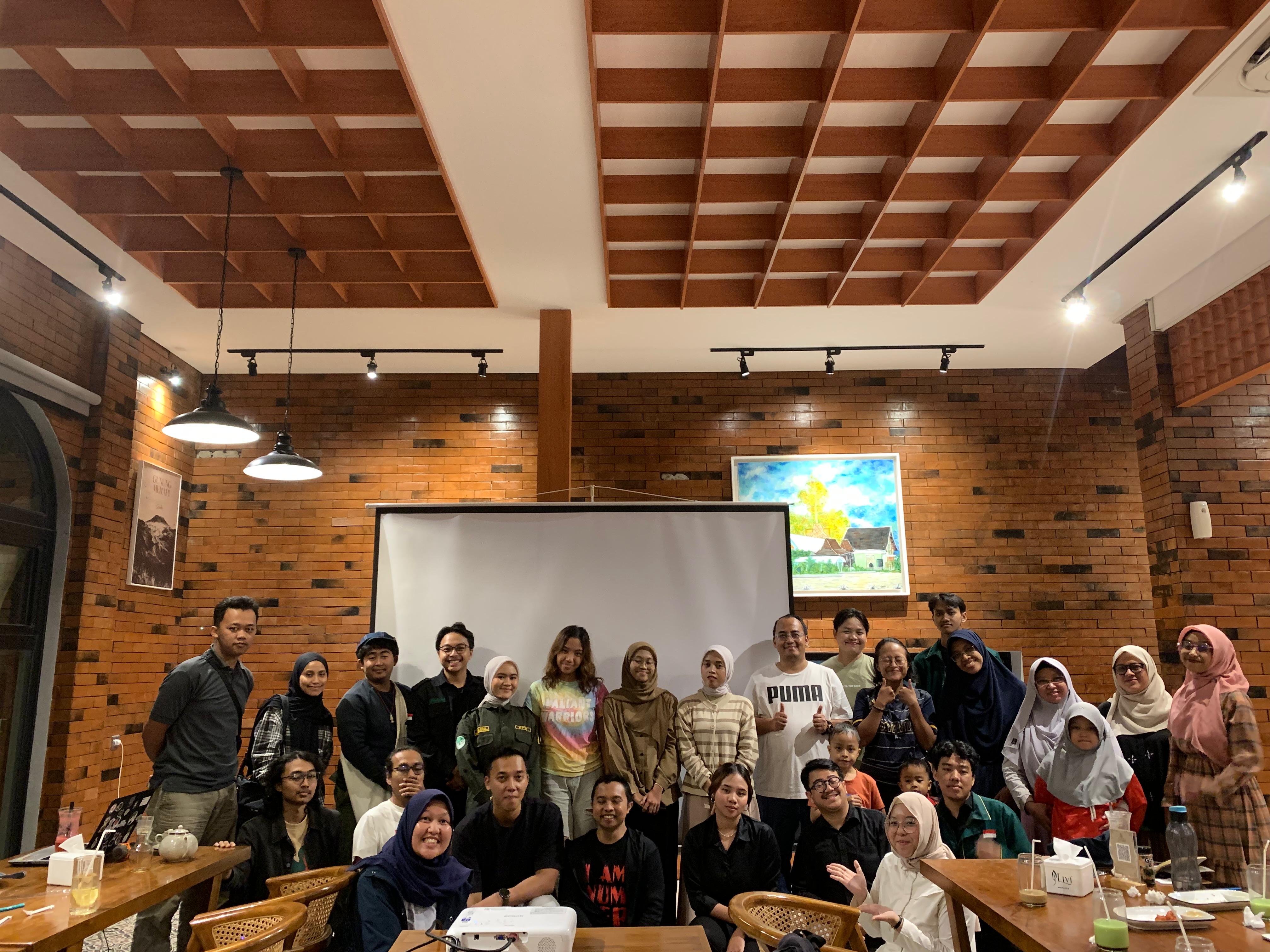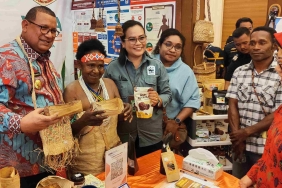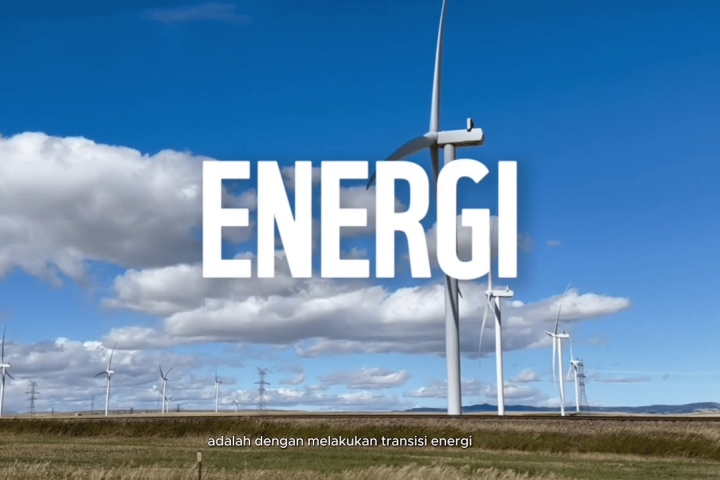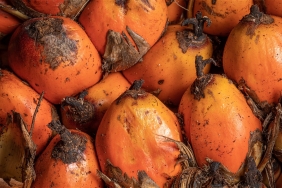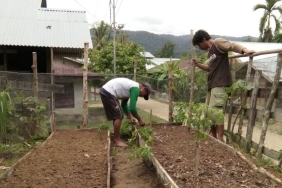WWF INDONESIA NETWORKS WITH BANDUNG AND YOGYAKARTA COMMUNITIES TO UNDERSTAND SUSTAINABLE COMMODITIES
As part of efforts to expand the impact and dissemination of information on sustainable commodities, WWF-Indonesia continues to strengthen collaboration with local communities in various regions. From May to June 2025, WWF-Indonesia's Sustainable Commodities team organized two informal meetings involving young communities in Bandung and Yogyakarta. These meetings became a space for sharing knowledge and experiences across sectors, especially in environmental issues and the importance of using sustainable commodities that emphasize palm oil.
Stories from Bandung Local Communities on Environmental Issues Around Them
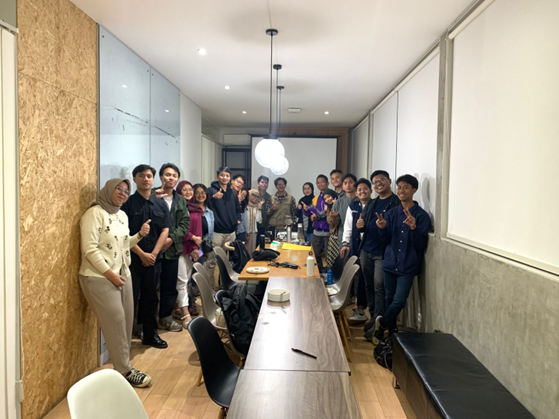
In a warm meeting in Bandung City, WWF-Indonesia's Sustainable Commodities team sat down with 20 young people from seven local communities: Hareudang Bandung, HMTL Itenas, River Clean Up, Earth Hour Bandung, Gelanggang Hijau, CAI Community, and Teens Go Green. This meeting was not just an introductory session, but a space to share stories about how young people care for their environment in creative and passionate ways.
Fresh ideas flowed from each community. Hareudang Bandung told the story of an innovative program that utilizes an AI system to reduce food waste on international flights, while Komunitas CAI (Cinta Alam Indonesia), which in Sundanese means water, voiced concerns about limited space, social inequality, and weak spatial supervision in North Bandung. These stories illustrate that collaboration and action, no matter how small, can pave the way to big changes for the environment
Sharing Experiences and Encouraging Sustainable Commodities with Yogyakarta Community
Not only stopping in Bandung, WWF Indonesia also embraced various communities in Yogyakarta. During this visit, WWF-Indonesia met with 33 activists from 13 organizations that have environmental and nature-based concerns and programs, namely; Ayu Jiwa, Earth Hour Yogyakarta, World Clean Up Day DIY, Sibhumiasri, Great and Green, IMTLI, Teman Berjalan, Himpunan Forestation UGM, Sosmas BEM KM UGM, 2030 YouthForce Indonesia, Klub Mencari Bunga, Trash Hero Yogyakarta, and Berbagi Bites Yogyakarta.
Some of the organizations shared the activities they do in protecting the environment around them. For example, there is Ayu Jiwa, a community from Bantul consisting of housewives who have a mission to be able to educate and manage household waste into valuable goods in everyday life. Another interesting story came from Great and Green which focuses on -organic waste management, Maggot BSF cultivation and Urban Farming.
.
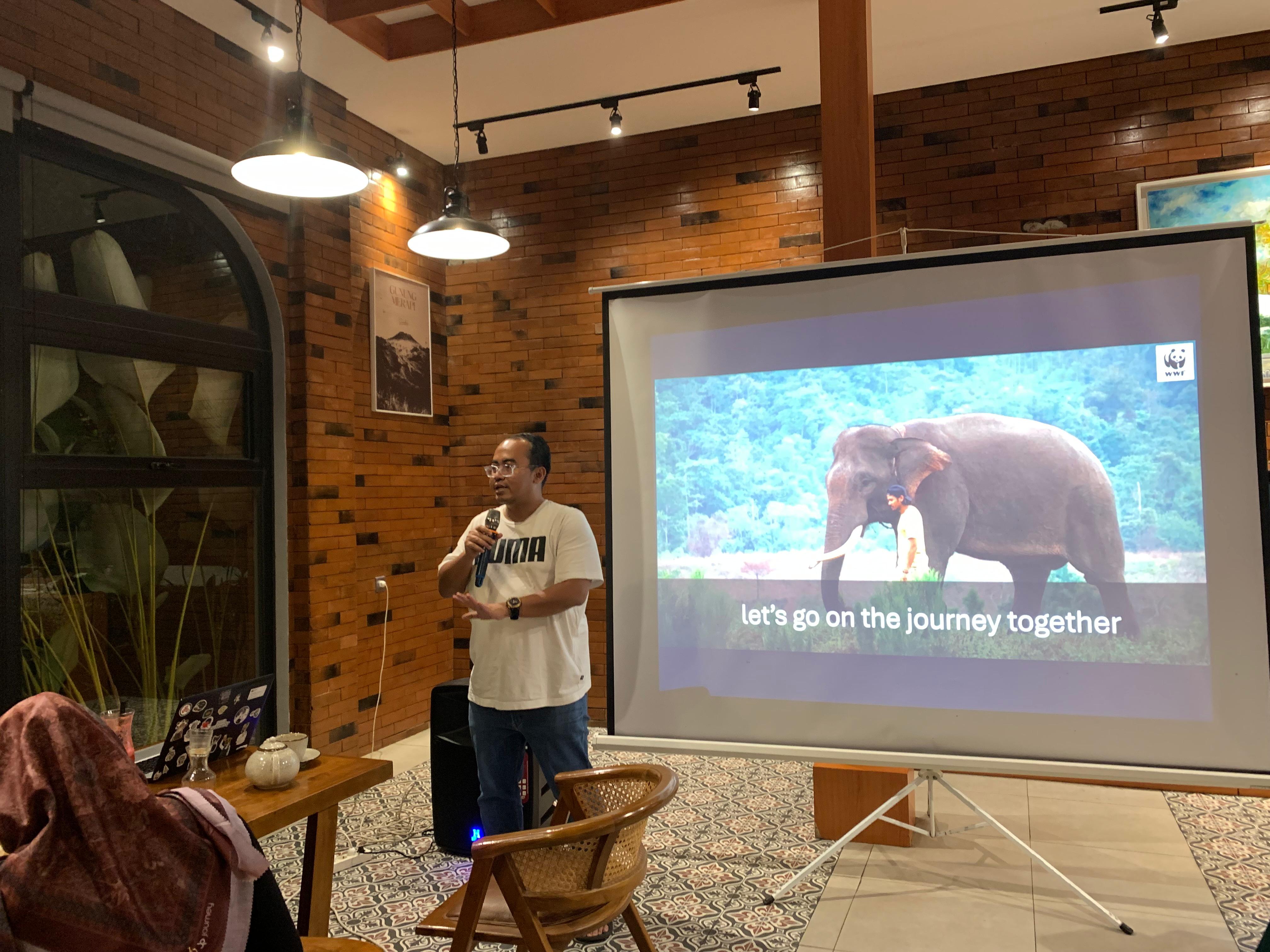
At this meeting in Yogyakarta, Ahmad Furqon, Global Palm Oil Technical Manager of WWF Singapore was also present to share about sustainable palm oil commodities from a global and domestic perspective in Indonesia. The enthusiasm of the participants was so great from the looks of how the participants were active to find out more about how the sustainable palm oil process chain was formed from upstream to downstream, until it finally came close to their lives
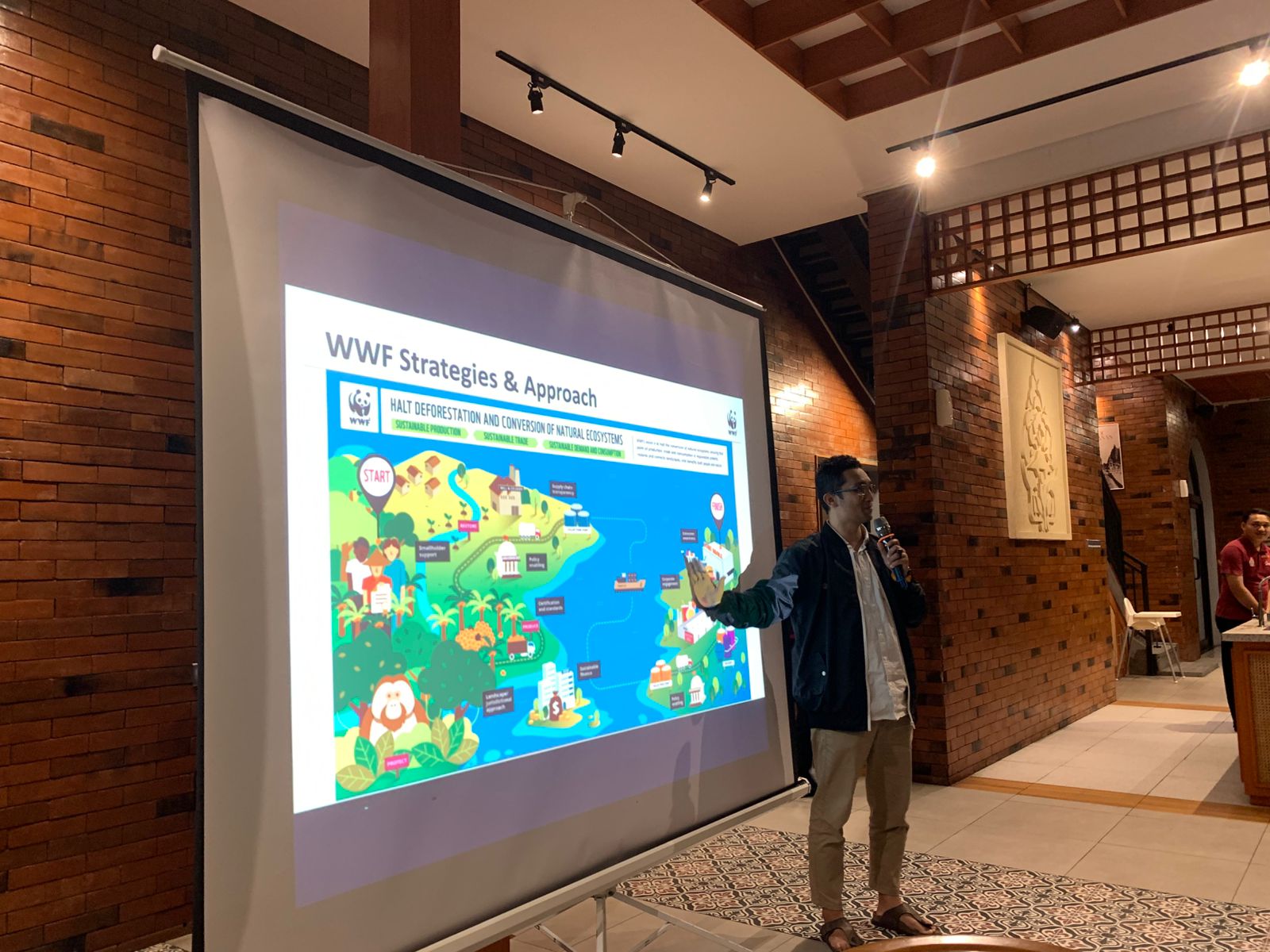
The enthusiasm of local communities who better understand the situation in the region and its dynamics, is such great fuel for WWF-Indonesia to be able to continue to work together to encourage the implementation of better environmental change, one of which is to continue to share the importance of using sustainable palm oil-derived commodities in Indonesia.

